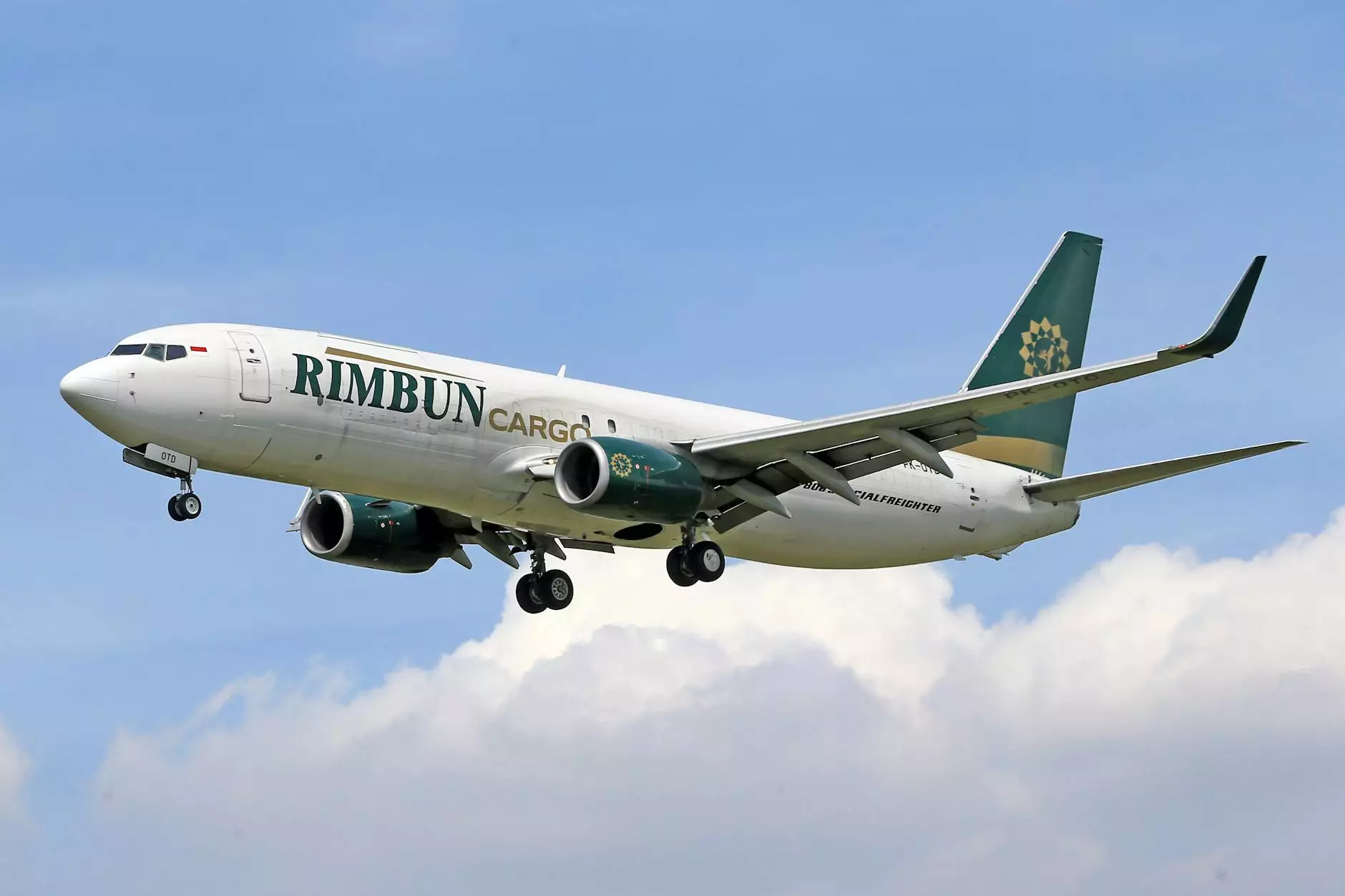Understanding Air Freight Rates Per Kg: A Comprehensive Guide

The Evolution of Air Freight
Air freight has transformed the shipping industry, becoming a vital component for businesses looking to deliver goods quickly and efficiently. The concept of air freight, particularly paying attention to air freight rates per kg, is essential for understanding the logistics of transporting goods internationally.
What Are Air Freight Rates?
Air freight rates refer to the cost charged by airlines to transport cargo through air routes, usually calculated on a per kilogram basis. These rates can vary significantly based on several factors including flight routes, cargo type, and service providers.
Factors Influencing Air Freight Rates per kg
Several key factors impact air freight rates per kg, including:
- Distance: The distance between the origin and destination greatly affects shipping costs. Longer distances often result in higher rates.
- Weight and Volume: Costs are typically calculated based on weight; however, dimensions may also come into play. The greater the weight or volume, the higher the rate.
- Cargo Type: Dangerous goods or temperature-sensitive items may incur additional charges, complicating the pricing structure.
- Service Level: Express air freight services come at a premium. Choosing between standard and expedited service affects rates directly.
- Carrier Choice: Different airlines have varied pricing; research can reveal a cheaper alternative that suits your needs.
- Fuel Costs: Fluctuations in fuel prices impact operational costs, leading to changes in freight rates.
- Seasonality: During peak seasons such as holidays, rates generally rise due to increased demand.
Calculating Air Freight Rates
To accurately calculate air freight rates per kg, shippers often use a formula that includes the following components:
- Base Rate: The initial cost per kg from the airline.
- Surcharges: Additional fees for fuel, security, or handling.
- Discounts: Based on contracts with freight forwarders or bulk shipments, discounts may apply.
By adding these components, businesses can obtain an accurate cost for shipping their goods.
The Importance of Choosing the Right Air Freight Partner
Selecting the ideal logistics partner can drastically affect your air freight expenses. Here’s why:
- Reliability: Partnering with a reputable freight forwarder ensures timely deliveries and minimized risks, allowing businesses to maintain their commitments to clients.
- Expertise: Experienced freight forwarders can provide insightful advice about optimal routes, customs regulations, and packaging methods.
- Cost Control: A knowledgeable partner will help you find the best air freight rates per kg according to your specific requirements.
Benefits of Using Air Freight Services
Choosing air freight offers numerous benefits to businesses, including:
- Speed: Air freight is the fastest mode of transport, catering to urgent deliveries.
- Global Reach: Airlines connect virtually every corner of the globe, allowing businesses to expand their market reach.
- Security: Air transport has stringent security measures, providing peace of mind for high-value shipments.
- Reduced Theft Risk: The swift nature of air cargo shipping reduces the time goods are in transit, consequently lowering the risk of theft.
Air Freight vs. Other Shipping Methods
When comparing air freight to other methods such as sea freight or road transport, several considerations can help businesses make informed decisions:
Shipping MethodSpeedCostCapacityAir FreightFast (1-5 days)HighModerateSea FreightSlow (10-30 days)LowHighRoad TransportModerate (1-7 days)MediumModerateChoosing the Right Air Freight Service Provider
Selecting a reliable air freight service provider is crucial for ensuring that shipments arrive on time and at the right cost. Consider these tips:
- Research: Analyze the market to identify trustworthy service providers with positive reviews.
- Request Quotes: Always obtain multiple quotes, providing the same shipment details to ensure comparability.
- Evaluate Insurance Options: Ensure the provider offers comprehensive insurance to protect against loss or damage.
- Look for Transparency: Clear communication regarding charges and services is essential for a good partnership.
Conclusion
Understanding air freight rates per kg is essential for businesses seeking to optimize their shipping processes. By grasping the factors that influence these rates, calculating costs accurately, and choosing the right logistics partners, companies can ensure their goods are transported efficiently and cost-effectively.
As the global market continues to evolve, companies must adapt by leveraging the benefits of air freight, ensuring that they can meet their customers' demands swiftly and reliably. Investing time in understanding the intricacies of air freight could result in enhanced operational efficiency and greater customer satisfaction.
Frequently Asked Questions (FAQs)
1. What is the average air freight rate per kg?
The average air freight rate per kg can vary widely depending on several factors, typically ranging from $3 to $10 per kg, though exact prices depend on specific logistics needs.
2. Why are air freight rates so high?
Air freight rates can be high due to the costs associated with operating aircraft, fuel prices, and the premium placed on speed and reliability compared to other modes of transport.
3. Can I negotiate air freight rates?
Yes, it is often possible to negotiate air freight rates, especially if you have frequent shipping needs or are moving large volumes of goods. Building a relationship with your freight forwarder can lead to better rates.
4. Do air freight rates include insurance?
Typically, air freight rates do not include insurance. It is advisable to purchase separate cargo insurance to cover potential losses during transit.
Contact Us
If you need assistance with your air freight logistics, consider reaching out to us at cargobooking.aero. Our team of experts can provide you with tailored solutions and the best air freight rates per kg to suit your business needs.









